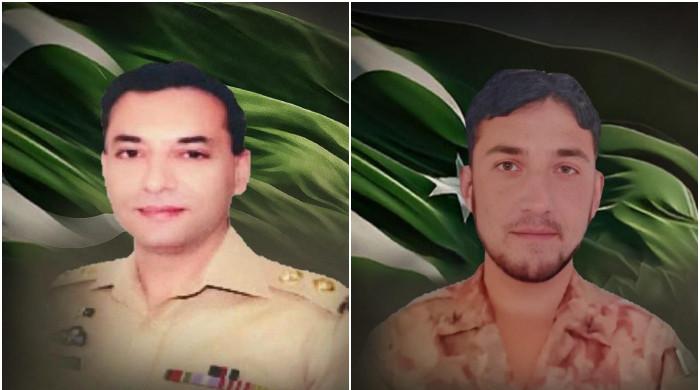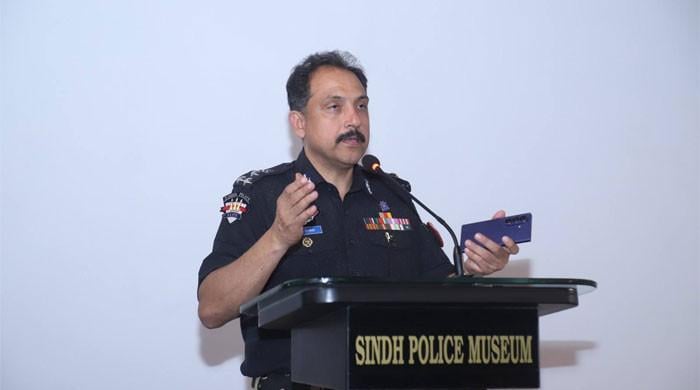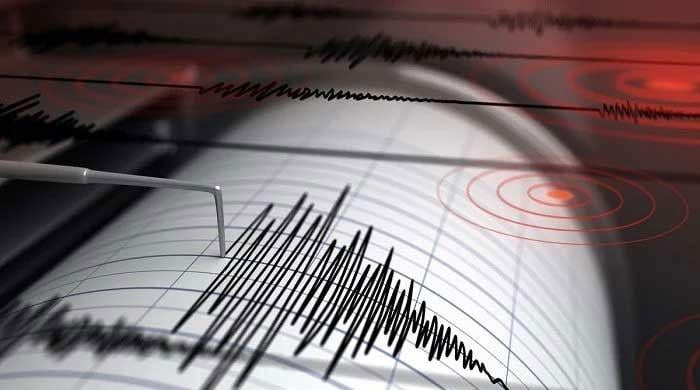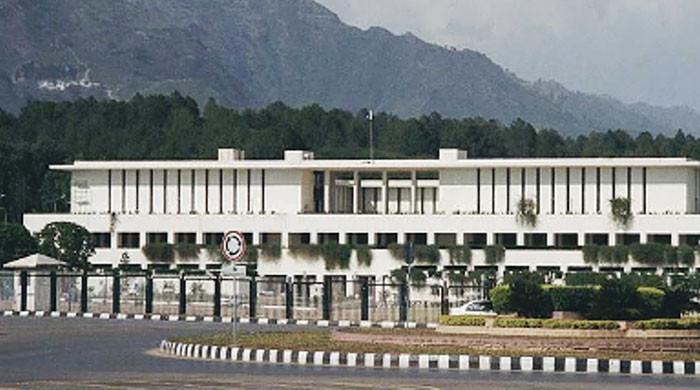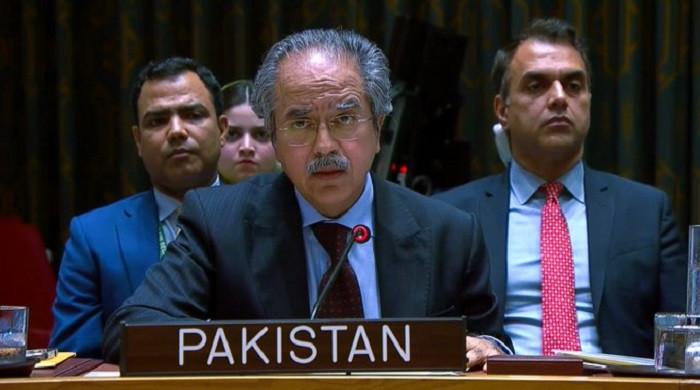Health ministry issues new rules for burial of bodies infected with coronavirus
Guidelines are aimed at providing a standard protocol based on WHO guidelines to prevent transmission of coronavirus
May 29, 2020
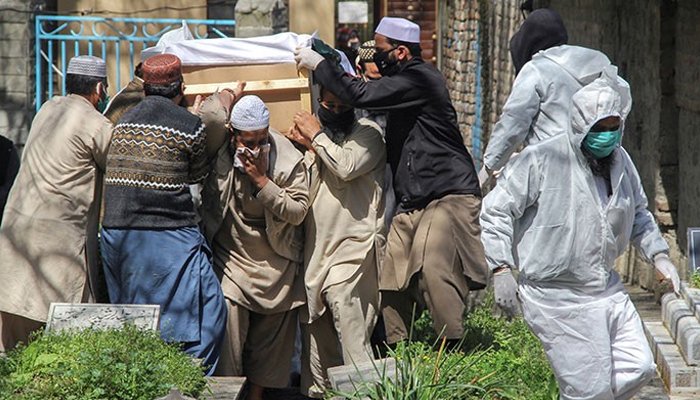
ISLAMABAD: The ministry of health has issued a new document to ensure precautionary measures are followed while handling the bodies of suspected or confirmed cases of coronavirus.
The federal government's document aims to "provide management guidelines to the families, healthcare providers, managers of health facilities and mortuaries, religious and public health authorities, and to all those who attend to the dead bodies of individuals suspected or confirmed for COVID-19".
Also read: Sindh issues new SOPs for burials for those died of coronavirus
The directives cover the entire process — from the beginning when a body is prepared to be transferred from hospitals and medical centres for the autopsy process [which according to the document should be conducted under engineered and controlled environment] to the burial and funeral rituals.
Burial, the document added, "should be managed by the authorities on a case-by-case basis, balancing the rights of the family, the risks of exposure to infection and the need of investigation the death cause".
Preparing the body
- Anyone coming in contact with the dead body, including the health care or mortuary workers, must ensure the standard preventive measures including hand washing and disinfection pre and post interaction with the body.
- Anyone attending the body must use appropriate personal protection equipment (PPE) including gown, gloves, and mask etc. Use of face shield and googles, if there is a potential risk of body fluid splashes, is highly recommended.
- Remove all lines, catheters and tubes thus preparing the body for transfer.
- Keep minimum movement of the body and safe handling during the transfer.
- Cover the body in a cloth and transfer to the mortuary area as soon as possible.
- Body bags are not necessary unless there is any leakage of body fluids from orifices. Make sure the leakage is contained before transfer. Body bags used must be able to carry up to 125kg of weight.
- No need to disinfect the body before transfer.
- Transfer can be through ambulance or any other vehicle, no special arrangements required.
General rules
- The funeral rituals must be based on the national and local requirements with the handling and disposition of the remains being dictated by the cultural appropriateness.
- Wound drainage and needle puncture holes should be disinfected and dressed in impermeable material.
- Secretions in oral and nasal orifices can be cleared by gentle suction if needed.
- Oral, nasal and rectal orifices of the dead body have to be plugged to prevent leakage of body fluids.
- The body should be cleaned and dried.
- The body can be covered with white cloth, as per the religious practice, for the burial.
- The health care worker or mortuary staff, preparing the body for burial, should follow the standard precautions of wearing appropriate PPE.
- Anyone who places the body in the grave must wear gloves. Post burial remove the gloves with care and wash hands with soap and water.
- Avoid the hasty disposal of the body of suspected or confirmed COVID-19.
Burials at home
- Family and friends may view the body but should not be allowed to touch or kiss and should wash hands thoroughly with soap and water frequently.
- The burial rituals (Burial gathering and Prayers) if any should have minimal possible numbers (only immediate family and relatives). All in attendance should observe standard precautions ie social distancing of at least 2 meters, face masks and frequent hand washes.
- The family member preparing the body for burial, should follow the standard precautions of wearing appropriate surgical/ medical mask and/or gloves.
- Clothes worn by the person preparing the body should be immediately removed after procedure, washed with warm water at 60−90°C (140−194°F) and laundry detergent or a disposable apron/gown should be used.
- Immunosuppressed persons with underlying health conditions and adults > 60 years of age should not directly interact with the body.
- Anyone handling the belongings of deceased should wear gloves. The belongings should be disinfected with 70% ethanol. The household should be disinfected using 0.5% chlorine or 0.1% bleach solution.
- The clothes of the deceased or fabrics used like linen, towels etc. should be washed in a machine using laundry detergent and warm water at 60−90°C (140−194°F).
The document has also listed guidelines and precautions to follow for mortuaries and those carrying out the autopsy.




